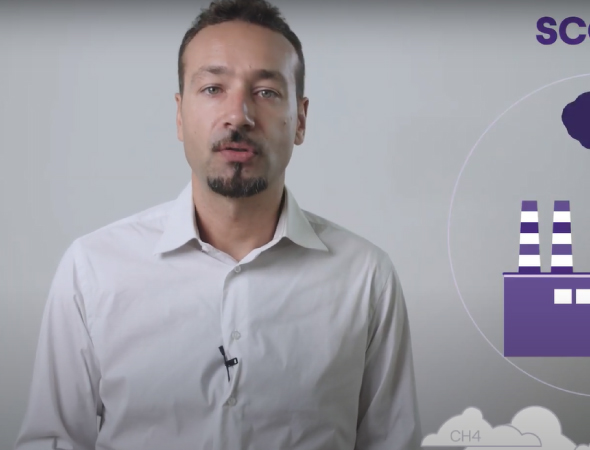
What are science based targets and how do they work?
Science based targets and zero emissions: why should companies set sustainability targets and create initiatives

As well, the CDP reported that supply chain or Scope 3 emissions are on average 11 times higher than a company’s operational emissions, and that suppliers that report to their customers through the CDP have cut over six billion metric tons of CO2, saving US$33 billion. Engaging with suppliers is therefore essential to meet decarbonization targets, and there is a tangible business benefit for suppliers to help customers in reporting their Scope 3 emissions. Enel X can help companies and their suppliers make this opportunity happen.
Why is it important to disclose progress on science based targets annually through the CDP?
By reporting environmental data through the CDP, businesses can gain a competitive advantage. Disclosure helps commercial & industrial players get ahead of regulatory and policy changes, identify and tackle growing risks, and find new opportunities for action on sustainability and decarbonization that investors and customers worldwide are expecting. Market demand for environmental disclosure through the CDP is high and growing. For instance, 590 investors with over US$110 trillion in assets and over 200 large purchasers with over US$5.5 trillion in procurement spending are requesting thousands of companies to disclose their environmental data through the CDP.
In addition, there are tangible business benefits to be gained from responding to stakeholder requests for disclosure to the CDP. These include:

Being fully aligned with the best-practice recommendations of the Task Force on Climate-related Financial Disclosures’ (TCFD);
Being prepared for likely mandatory environmental reporting rules;
Identifying emerging environmental risks and opportunities that would otherwise be overlooked;
Tracking and benchmarking progress across sectors, and receiving feedback on that progress on a yearly basis.


We are experiencing an environmental and industrial revolution. Global warming is real and critical for individuals and businesses. Concrete actions are needed to reduce emissions and save our planet. To fight this enemy, we need to understand every single detail about it.
Head of Customer Insights solutions at Enel X
Enel X strategies for companies to reduce GHG emissions
Enel X can help companies define and set a decarbonization strategy, developing and implementing a roadmap to decarbonize their entire value chains. The roadmap can include measuring and understanding their environmental impact by reporting direct (Scope 1) and indirect (Scope 2 and 3) emissions. Ways to decarbonize include electrifying their consumption and e-Mobility solutions, such as the electrification of company vehicle fleets. As well, Enel X can help customers optimize their energy usage in an ongoing manner by providing consulting services on renewable energy purchasing and implementing renewable energy solutions and distributed energy resources (DERs).
Enel X can assist companies in decarbonizing their supply chain by:

Identifying and prioritizing areas that contribute the most to Scope 3 emissions;
Devising an ambitious plan and assigning clear responsibilities for goals and activities through the supply chain;
Helping their suppliers make progress rather than just relying on them to do so;
Setting a clear budget to achieve success;
Monitoring supply chain progress and tracking results.












.jpg)







